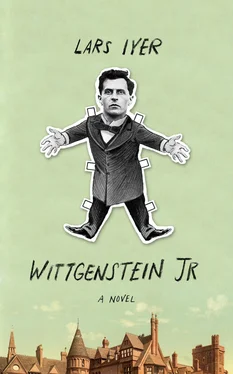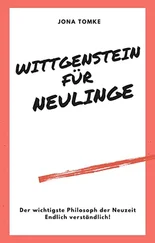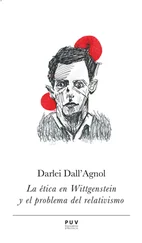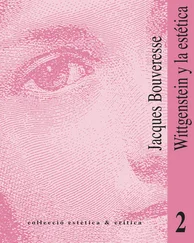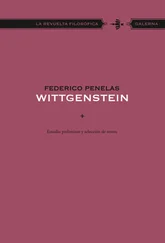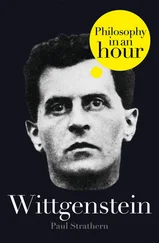The old world is passing. Worlds and worlds are vanishing. A whole civilisation — that was once our civilisation — sinks into the greeny-black depths of forgetting …
Poor, mournful Okulu of the library stacks … Poor deep-diving Okulu. He, like us, is seeking a past that grows ever more remote. He, like us, is a creature of the upper waters — of the sun-suffused shallows. But he, unlike us, hasn’t forgotten the depths …
Next year, a new crop of students will appear to replace us. Next year, our tutors will already have begun to forget us. Our essays and exam scripts will be shredded and recycled. Our photos will disappear from internal websites. Our academic referees will no longer be sure who we were. We’ll be confused with this person, with that one. And in the end, we’ll be lost in the anonymous crowd of all the students who were ever taught here.
We each bear a trace of every student who ever studied at Cambridge. We are each a ghost of all the other students — students who have been here, and students who have yet to be here. Our lecturers, who will have seen us already, will see us again. We will have been here before, for our lecturers. We will be here again. There is neither end nor beginning.
But with Wittgenstein it is different. We are not nobodies. We are not insignificant. We are at Cambridge for a reason: that’s what his presence helps us to believe. We are here for him , just as he is here for us . And we are here, Wittgenstein and his men, for the sake of thought .
Something is happening. Something is going on that will not be repeated .
The convolutions of his lectures. How complex his enemy is! he says. How complex, then, his classes must be!
Is it necessary, in some way, to recapitulate the entire history of philosophy in his lectures? he wonders. The entire history of philosophical mistakes ?
Is it necessary to lead his class to the origins of philosophy? Is it necessary to lead us to an originary philosophical bafflement ?
Katargesis : written on his blackboard in capital letters. And in small letters, below: The fulfilment of the Law. Fulfilment underlined. Then, in still smaller letters: The fulfilment of philosophy?? Two question marks. The end of philosophy??? Three question marks.
What will he say when the last words of philosophy are spoken? Wittgenstein wonders. What will he say, when the spell of philosophy has been broken?
He’ll say nothing, he says. He’ll open his eyes. He’ll look up at the sky. He’ll laugh.
After philosophy , thoughts will be common, Wittgenstein says. Thought will belong to all, like the sunlight, like the rain.
After philosophy , there will be nothing important at all, he says— everything will be important. Everything will take on significance. The light on a particular afternoon will be as rich as the collected works of Kant.
• • •
To come across philosophy rusting in a field, like an old piece of farm machinery. To chance upon philosophy as one might the fossilised carcass of some great prehistoric beast. That’s what he wants, he says. To decommission philosophy. To place it out of use , as former terrorists do their weapons …
For two and a half thousand years, philosophy has been turning like a cat, wanting to lie down. Two and a half thousand years of thought seeking rest, seeking sleep, seeking death …
But soon thought will lie down, he says. Soon, philosophy will lie down.
Only at its end will we know what philosophy was, he says. Only at the brink of its cessation will philosophy reveal itself.
On the last day, philosophy will stand silhouetted against non-philosophy. Against the storms of non-philosophy.
On the last day, thought will lie down with the opposite of thought. On the last day, thought and the world will be as one.
On the last day, there will be nothing left to think . On the last day, thought itself will become redundant.
At the end, after the end, we will use the Critique of Pure Reason as a kilo-weight, the Tractatus as scrap paper. Our children will doodle on the works of Plato, and make paper boats from the pages of Spinoza. They will fold the Monadology into a paper hat …
The end of logic. The end of philosophy.
His head will empty, when it comes, he says. His head will be empty, as our heads are already empty.
And philosophy will be revealed as what it is, and what it always was— nothing . And logic will have at last come into its own —as nothing .
The end will see the hollowing-out of philosophy, he says. The voiding of logic. Until it becomes the empty shell through which nothingness roars like a distant sea.
Three AM. The hard white light of Accident and Emergency. Guthrie, propped between Ede and I, apparently concussed. Staging the death of Empedocles was bound to have its risks.
An indignant rah, demanding to be attended to straight away . A suicidal Sloane, wheeled straight into resus. A Varsity face, moaning loudly, a patch over his right eye. Some rugby beefcake bluelighted in after a drinking game— it’s not a good night unless you end up in A&E , he bellows.
EDE (pissed off): I wish he’d fucking shut up — fucking caveman.
Cries as minor fractures are set. As local anaesthetic is injected. Groaning. Wailing. The malty smell of urine.
The doctor shines a light in Guthrie’s eye, and disappears again.
EDE (more pissed off): Fuck this.
We stare at the no-win, no-fee solicitors’ notices. At the in-house hospital magazine. At the ward philosophy poster— striving for your health in a holistic way … encompassing your disabilities … understanding your cultural sensitivities …
EDE (completely pissed off): Let’s just leave him here, for fuck’s sake. He won’t know the difference.
GUTHRIE/EMPEDOCLES: Can’t you see where you are looking? You see the earth, a pit, and you see only these miserable laws, which are laws of the dead. Don’t you look to the laws of the gods?
We prop Guthrie against the wall. Snatches of Empedocles follow us to the door.
• • •
Out — into the night. The sense of having made the greatest of escapes.
Our friendships are not deep, we agree. We hardly know what friendship means. We happen to come together, that’s all. We coincided, that’s all. We were going in the same direction for a while, and we made the best of it.
Cambridge is only an interlude, we agree. Cambridge is a corridor, a passageway. And we’ve milled about together, waiting for life to begin.
After Cambridge, we’ll fall out of contact. After Cambridge, we’ll unfriend each other on Facebook. After Cambridge, we’ll forget each other’s names. Each other’s voices. After Cambridge, we’ll begin to confuse each other with someone else.
We fell into step with one another for a while, that is all. We passed the time …
The Snowball.
Ede and I, in our dress suits, knocking on Wittgenstein’s door.
He looks tall when he answers. Neat. No jacket. White shirt. Pleated trousers, worn high on the waist.
How fresh his room seems! His floor — how it shines! I picture myself walking across it in bare feet.
WITTGENSTEIN (smiling): Your ties are all wrong.
He reaches out just as Ede lifts his chin, adjusting the angle of Ede’s bow tie.
How intense he is! As though bow ties were a problem in logic!
WITTGENSTEIN (smiling again): There!
My turn. I look upwards, at the panelling on the ceiling.
Читать дальше
